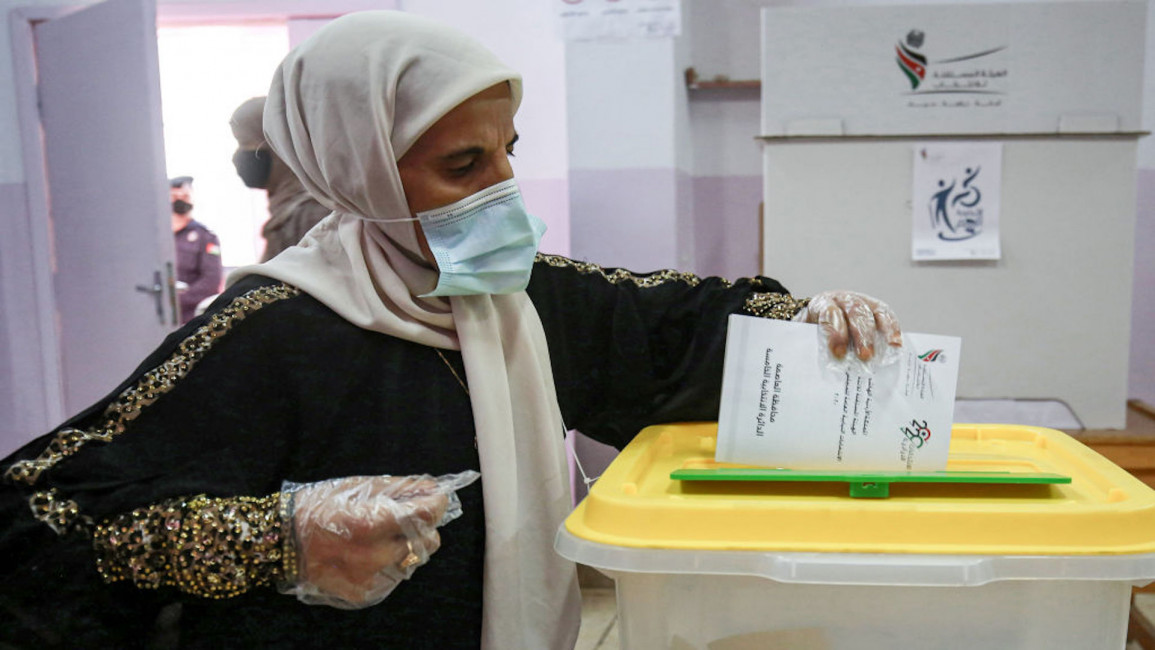Democracy at 'all-time low' following coronavirus pandemic driven by authoritarian regimes in the MENA
The study by the Intelligence Unit of the British business research group found that the 2020 average global score, calculated on a scale from 0 to 10 (with 10 indicating the highest democracy level) to have hit an all-time low since the index was first produced in 2006.
Joan Hoey, editor of the annual Democracy Index, said the slump from 5.44 in 2019 to 5.37 in 2020 was a consequence of "the biggest roll back of individual freedoms in peace time".
The result was attributed largely - but not solely - to government-imposed restrictions on individual freedoms and civil liberties that occurred across the globe in response to the coronavirus pandemic.
It was also driven by a decline in the average regional score especially in the "authoritarian regime"-dominated regions, including the Middle East.
"The coronavirus pandemic provided a cover for abuses of power by authoritarian regimes and populist governments," Hoey said.
 |
"The pandemic exposed the nature of governance in the 21st century" |  |
In democratic countries, the "top-down approach of imposition of restrictive measures on people", carried out with little dialogue and consultation between governments and the people.
It has "exposed the nature of governance in the 21st century", the editor said at the report's launch on Thursday.
MENA countries are in a "state of stasis" and "pervasive apathy and discontent" and the large protest movements that mushroomed prior to the pandemic "are likely to reassert themselves, maybe in the coming year", Hoey said.
Read also: Covid claims 100,000 lives in Mideast: AFP tally
The region retained the lowest score after Sub-Saharan Africa, while also recording the second-biggest reduction in regional average score in 2020.
That score has declined every year since 2012, when the advances that followed the onset of the pro-democracy Arab Spring uprisings in December 2010 began to be reversed.
Seven of the 20 countries in the region featured at the bottom of the global ranking.
Syria recorded the lowest score, followed by Yemen, Libya and Saudi Arabia.
The region has fallen back to levels it was at in 2010, before the start of the Arab Spring, when it scored 3.43 in the Democracy Index.
For a few years it appeared that the Arab Spring might herald a period of political transformation analogous to that in Eastern Europe in the 1990s.
Only Tunisia, however, graduated into a "flawed democracy".
Algeria returned to the "authoritarian regime" category in 2020, after a brief upgrade to "hybrid regime" in 2019.
The Hirak protest movement, which led to the peaceful removal of the long-standing president, Abdelaziz Bouteflika, brought some hope for reform.
Another regime insider, Abdelmadjid Tebboune, won the December 2019 presidential election and activists continued to be detained by the authorities in 2020.
Elections in the Middle East last year also illustrated a growing region-wide trend of voter apathy.
Parliamentary elections in Iran in February saw voter turnout at the lowest levels in the Islamic Republic's 41-year history, reflecting a shift away from hard-line versus reformist divisions.
Jordan registered turnout of just 29.9 percent, continuing a long-term decline.
Both countries registered a greater decline in their overall scores than the regional average, with Iran falling by one place, and Jordan by four, in the global ranking.
In Lebanon, which finds itself in the midst of an economic and political crisis, there was an increase in the intimidation of civil rights activists and a rise in the number of disappearances of alleged political dissidents as the regime looks to cling onto power in the face of widespread popular anger, the report found.
Meanwhile, in Egypt, the regime made it increasingly hard for opposition candidates to stand in elections, as the uncompetitive nature of parliamentary elections in 2020 showed.
Only about half of the world's population live in a democracy of some sort, and even fewer (8.4 percent) reside in a "full democracy".
More than one-third of the world's population live under authoritarian rule, with a large share being in China.
Follow us on Facebook, Twitter and Instagram to stay connected



